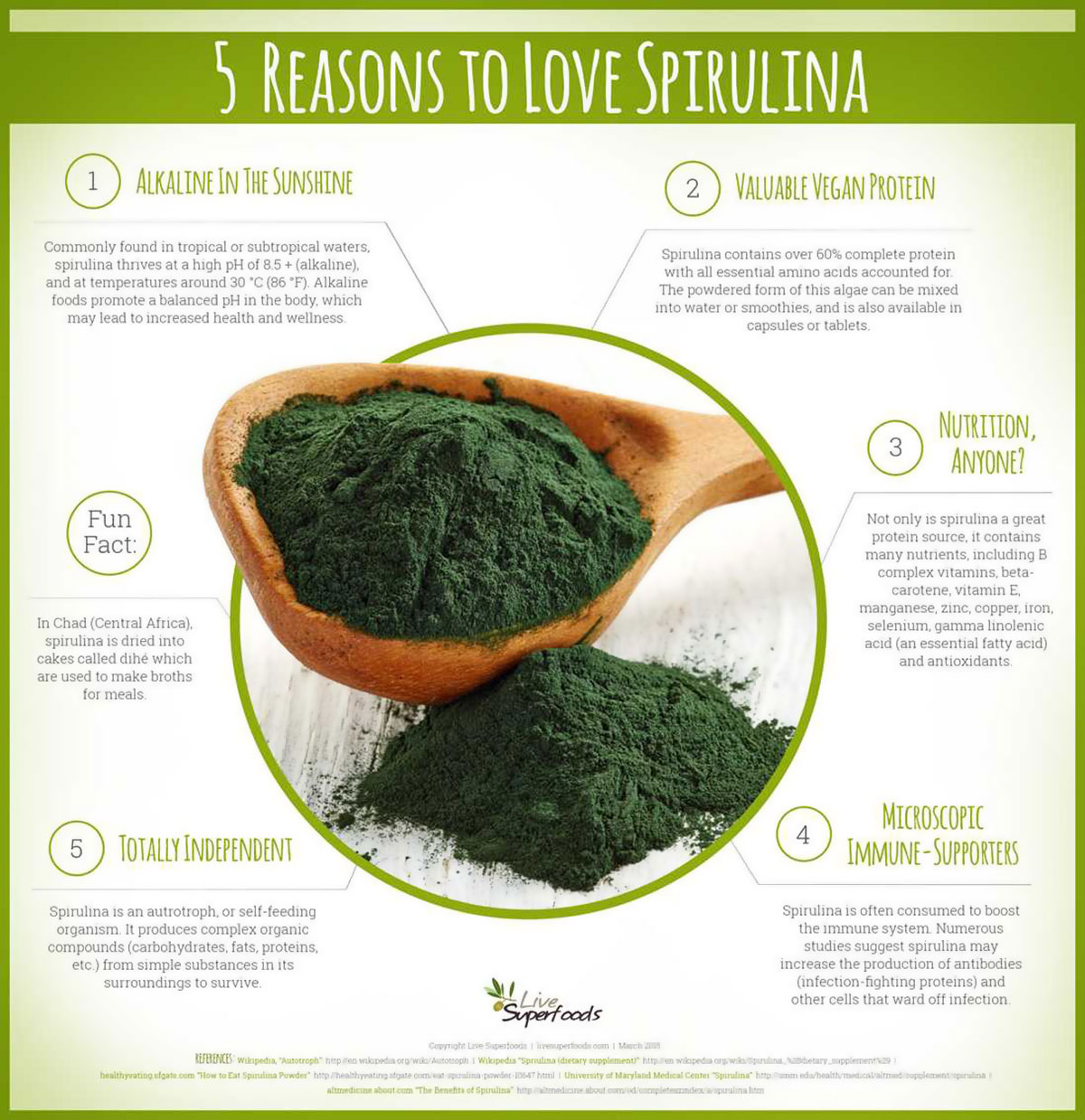2. Spirulina may help improve the health of the liver
An animal study found that spirulina improved the biochemical parameters of liver health in rats exposed to liver toxins. The researchers concluded that spirulina has liver protective characteristics associated with the antioxidant capabilities of spirulina.1✅ JOURNAL REFERENCE
DOI: 10.1186/1476-511X-9-35
In a randomized, double-blind study involving 46 nonalcoholic fatty liver disease patients, the participants were assigned to take either a placebo or 20 g of spirulina every day for 8 weeks. Antioxidant capacity, malondialdehyde, insulin, glucose, serum lipids, blood pressure, anthropometric parameters, liver enzymes, and fatty liver grade were evaluated before and after the 8 weeks. The results found that spirulina may improve fatty liver grade by the modification of some lipid profiles, oxidative stress and liver enzymes.2✅ JOURNAL REFERENCE
DOI: 10.1002/fsn3.2368
In another study, 3 patients who were suffering from non-alcoholic fatty liver disease had blood tests before and after receiving 4.5 g of spirulina each day for three months. Ultrasound was used to evaluate their liver after the 3 months and the results suggested that spirulina could be considered as an alternative treatment for non-alcoholic fatty liver disease patients.3✅ JOURNAL REFERENCE
DOI: 10.1186/1752-1947-4-103

Image Source – healthygoods


